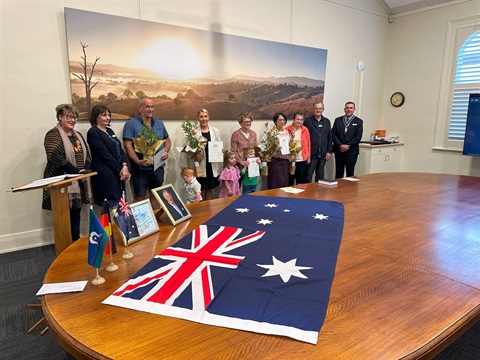I studied law by accident. I didn’t come from a family of lawyers or have any legal connections. My parents actually advised me against studying law. My father was an academic in philosophy and thought law, as opposed to philosophy, was a narrowing influence on one’s mind.
Looking back, I think I followed a set of intuitions at various points without much strategy. I’ve never had a career plan – my career has been driven more by accident than by design.
I had some wonderful teachers at Melbourne Law School in the 1970s, including Sandy Clark, Colin Howard, Harold Luntz, Gillian Triggs and Mark Weinberg. In my final year, I got to study international law, which attracted me because it didn’t try to define itself as separate to politics, unlike the rest of the law subjects I was studying.
In those days, the tendency was to teach law as if it were a pure, objective, rational mechanism to determine the right way forward – and I’d never felt completely satisfied with that as an explanation.
It’s impossible to ignore political context in international law. It was much more difficult to make a claim that international law doctrine was a pure, objective truth. You could see that international law is a complex mixture of principles based on what countries decide should bind them.
In a sense, the international legal system is a voluntary one – states are bound by international law insofar as they have agreed to be bound, so international politics is built into it. That to me was an intriguing aspect of international law.
The legal profession creates what I would call false deadlines, and I think it’s important not to hasten into any particular career path. Overall, the most impressive lawyers I’ve met are people who have taken time away from the law to go and explore different things, and then perhaps come back to it. People who have collected broad experiences tend to be wiser lawyers.
It’s been a huge privilege to engage with the marvellous students in all the institutions I have taught at. The largest part of my career has been as an academic, and without question, the most constant source of energy and delight as an academic is seeing what your students go on to do – to find out that they’re happy and doing rewarding things.
Sir Ninian Stephen was an inspiring model of judicial independence. After my studies at Melbourne Law School, I had the wonderful experience of working as an associate to him in the High Court of Australia. He was a remarkable man and it was fascinating to watch him reach his decisions in particular cases, and to see his adherence to the value of an independent judiciary, something that showed no fear or favour towards the government or any particular type of litigant.
Doing a graduate law degree at Harvard in the early 1980s was a deeply influential period in my life. The approach to teaching at Harvard was very different to the tradition of law teaching in 1970s Australia, and I was exposed to critical thinking about law through both the critical legal studies movement and feminist legal theory.
These things are part and parcel of the curriculum at Melbourne Law School now, but at that time I don’t think they were taught in any law school in Australia.
I take the term feminism to mean something quite straightforward and simple, which is a commitment to the equality of women. I was born in a large family, one of seven children – five girls, two boys – and my parents brought us up to believe that we could do anything. It wasn’t until I first started working in the legal profession that I observed things that struck me as strange.
I noticed that there simply weren’t any women judges or women barristers or women partners in law firms during my first year as an articled clerk. I began to realise what a male world law was. Even in those days, half of the law school graduating class were women. Why did they never get any further than very junior levels in the legal profession?
I realised feminism could shed a light on international law. Coming back to Australia from Harvard as an academic, I began to talk with colleagues at Australian universities about these issues – both its institutions, how it was structured and on the nature of the principles that are developed in international law.
There are deeply different understandings of international law. I’ve enjoyed being involved with the Asian Society of International Law. It has taught me a great deal about how we often think of international law as a universal language, where everybody understands the same principles. You only have to talk to fellow international lawyers in the Asia-Pacific region to see that it’s actually not the case.
I have been an ad hoc judge for two cases at the International Court of Justice (ICJ). It has been rewarding to observe the way that arguments are framed and the process of judicial deliberation. I’m very much looking forward to the next period, being able to work full time at the Court and being a judge as my day job – not something I’m trying to fit in with other things.
At the moment the ICJ has 15 different cases on its docket. These range from border disputes between two countries, to interpretations of the Genocide Convention and other multilateral treaties. The cases come from all regions of the world and present a wide range of questions of international importance.
A big issue the Court faces is trying to encourage more countries to accept its jurisdiction. In the United Nations system, there are mechanisms for the use of force that are approved by Security Council. But the ICJ is unique in the sense that it offers adjudication as a way of resolving international disputes peacefully.
When there are major international disputes, a judicial decision can only ever be part of a resolution. But in this day and age, when we are conscious of the problems of using of force as a way of resolving issues, the Court is offering a real alternative. So a challenge is to get more countries to appreciate that.
A very big issue we’re all facing is climate change. Obviously, if the Court were called on to engage with the legal issues surrounding a complex problem like climate change, it couldn’t provide a complete solution, but the Court does have a role in contributing to the development of jurisprudence on important questions for the whole globe.
– As told to Sam Burt







